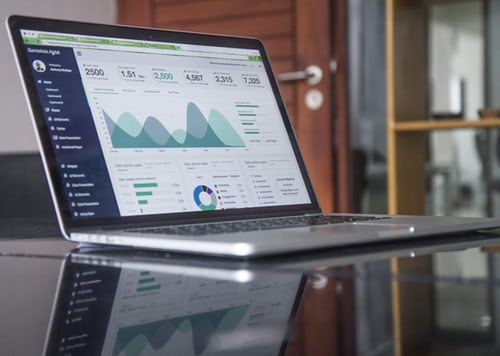
There are three kinds of phone lines available to small to midsize businesses: analog, PBX and next-generation digital and fiber. In this article, we discuss the best options available. If your business phone system is outdated or you need advice on how to set up your system, HRCT can provide guidance on whether to choose premised-based phones or hosted phone systems.
What Are the Three Types of Business Phone Systems?
Analog, PBX, and digital are the current choices for business owners, but it's not a fair playing field. Most businesses are skipping analog and PBX systems as outdated technologies. The new digital and fiber options are fast and reliable but may come at a higher price range. Let's take a closer look at each option.
Analog Phone Systems
This technology has been available for decades. It runs on copper lines that criss-cross the nation. It may bring to mind long-ago memories of busy signals, dropped calls and high prices for long-distance calls. These phone lines may be good for nostalgic moments but not to handle your business communications. Analog technology can't handle the requirements of today's business needs, such as call routing or on-the-go access.
PBX Phone Systems
PBX systems developed to meet the needs of businesses. These systems allow businesses to have multiple lines for more calls on a single phone number. With a PBX based business telephone services, you can install a few lines that are shared. But it gets complicated. You also need a dedicated switch, a host computer, software to handle transfers, and lines threaded from a phone closet to each phone.
PBX also falls short of the expectations of modern business owners, who need communication technology that supports voice and data traffic on a shared line. IP PBX meets those needs and handles conference calls and voicemail too. However, both PBX and IP PBX require a full-time resource to manage the system - unless you hire a managed IT company, such as HRCT, to manage them for you.
Digital and Fiber Business Phone Lines
With digital phone service, calls travel over an internet connection and are sent via high-speed internet service. When you make a call on a digital phone line, your phone is cloud-based. The downside is that, if you lose the internet connection, you lose your phone service. The upside is that you can make calls via connected laptops, phones, and tablets.
Digital phone service uses traditional internet connections, while fiber phone services travel over ultra-fast fiber-optic lines. If speed and quality are paramount, businesses choose fiber. Businesses may choose digital if that's what fits their budget. Analog and PBX/IP PBX are not recommended.
Why Choose HRCT to Set Up Your Business Phone System?
HRCT is a managed IT company that can set up hosted or on-premise phone lines with 24-hour support so that your business is always connected. Contact us today to schedule an evaluation of your business needs.








